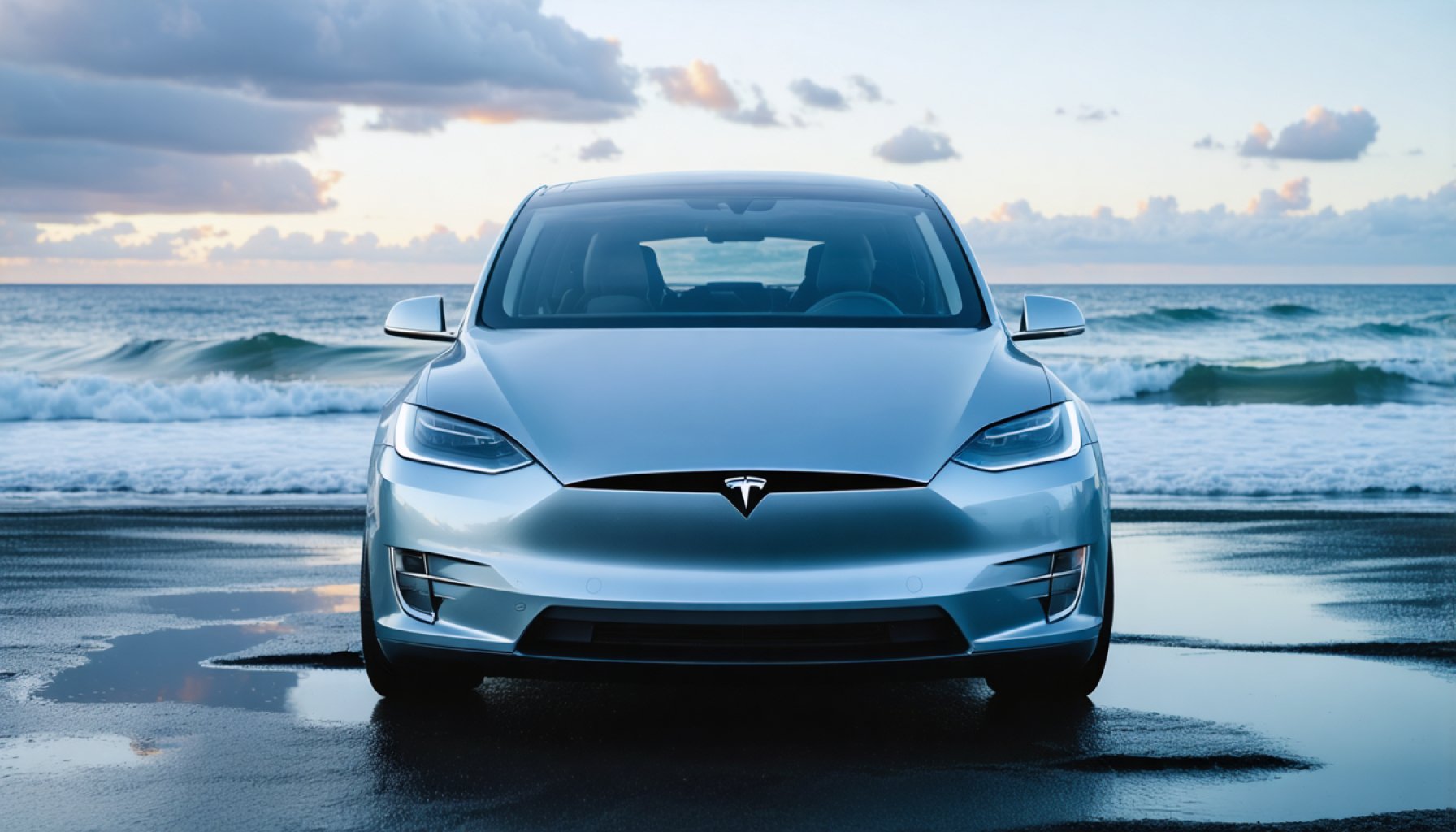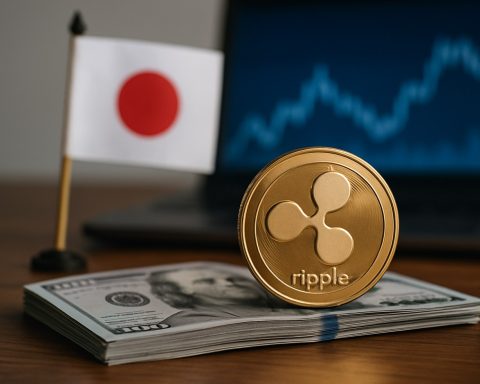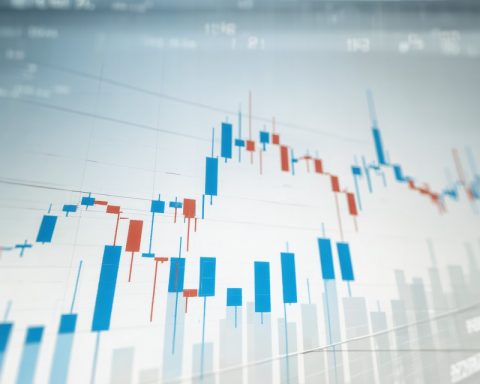- Tesla shares fell by 9.25%, amid market volatility and adverse brand perceptions.
- Global indices like the S&P 500 and Nasdaq Composite declined over 5%, highlighting Tesla’s pronounced drop.
- Political entanglements and poor sales performance are major concerns for investors.
- J.P. Morgan analyst Ryan Brinkman cut Tesla’s earnings forecast, diverging from Wall Street’s optimism.
- Tesla’s first-quarter delivery numbers were disappointing, raising brand perception concerns.
- CEO Elon Musk’s political engagements potentially affect brand perception and sales.
- Tesla faces dwindling sales in key markets like China and France, worrying shareholders.
- There are rumors that Musk may step back from political roles to focus on Tesla’s challenges.
- The situation highlights the linkage between brand resilience and leadership actions.
- Investors are advised to be cautious until Tesla demonstrates strategic improvements.
Amidst the frenzy of a volatile stock market, Tesla finds itself navigating turbulent waters. A Friday not soon forgotten saw shares of the electric vehicle titan plummet by a staggering 9.25%, marking yet another difficult chapter in a tale of brand adversity and market unrest.
As global indices like the S&P 500 and Nasdaq Composite faced more than 5% declines, Tesla’s dramatic dive stood out, casting a significant shadow over the day’s financial narratives. The heart of this turmoil links to a potent blend of political entanglements and underwhelming sales performance—a combination that has sparked concern among investors and analysts alike.
Ryan Brinkman, a seasoned analyst at J.P. Morgan, delivered a somber verdict by slashing Tesla’s first-quarter earnings forecast from $0.40 per share to a mere $0.36, alongside a reduced full-year projection, now peering through a pessimistic lens at $2.30 per share. This sharp recalibration starkly diverges from Wall Street’s optimistic consensus of $2.70, revealing growing trepidation in professional circles.
The storm clouds gathered as Tesla announced dismal delivery numbers, just 336,681 units for the first quarter—the lowest since 2022. This revelation, regarded by Brinkman as a confirmation of Tesla’s deteriorating brand perception, is fueled by CEO Elon Musk’s controversial political engagements. As Musk’s visibility grows on political stages, the impact crashes back onto Tesla, with consumers reacting by stepping back from the brand.
Globally, market reports echo a similar refrain with Tesla’s sales waning in pivotal regions like China and France. Shareholders are casting wary eyes not only at the slipping sales figures but also at Musk’s seeming lack of involvement in day-to-day operations, in spite of his role as chief executive.
Whispers now suggest Musk might retreat from his duties within the Trump administration to re-dedicate himself to guiding Tesla through these choppy seas. Yet, even a potential shift in focus may not suffice to quell investor concerns or bridge the widening gap between Tesla’s current market valuation and its market realities.
This episode underscores a crucial takeaway: a company’s brand resilience is inextricably linked to its leadership’s actions, on and off the corporate stage. As Tesla maneuvers through this critical juncture, its future hinges not only on swift managerial pivots but also on a broader strategy to regain consumer trust. For those contemplating an investment in Tesla, caution is advisable—until clearer skies appear on the horizon.
Tesla’s Market Turmoil: What’s Next for the EV Giant?
Understanding Tesla’s Current Market Struggles
Tesla, a pioneer in the electric vehicle (EV) space, is currently facing some significant hurdles. A recent plunge in its stock price by 9.25%, amidst a broader decline in global indices, highlights a challenging period marked by political controversies and subpar sales figures.
Key Issues Impacting Tesla
1. Political Entanglements: CEO Elon Musk’s high-profile political engagements have raised eyebrows, potentially damaging Tesla’s brand perception. Musk’s actions and involvement, particularly in contentious political affairs, may affect consumer sentiment.
2. Weak Sales Performance: Tesla reported delivering only 336,681 units in the first quarter, the lowest since 2022, impacting investor confidence. The lack of robust sales growth in markets like China and France underscores this concern.
3. Leadership Dynamics: There are suggestions of Elon Musk potentially stepping back from certain external activities to refocus on Tesla. His involvement in political spheres and other ventures has led to questions about his commitment to managing Tesla’s operational challenges.
Deep Dive: Tesla’s Financials and Adjustments
– Revised Earnings Projections: Ryan Brinkman from J.P. Morgan has revised Tesla’s earnings forecast, lowering it from $0.40 to $0.36 for the first quarter and $2.30 for the full year. This is a significant contrast to Wall Street’s more optimistic consensus of $2.70, indicating growing caution among analysts.
Market Forecasts & Industry Trends
– EV Competition: Tesla faces intensifying competition from traditional automakers and new entrants in the EV market. Companies like Ford and GM have ramped up their EV offerings, which could pressure Tesla’s market share.
– Sustainability Efforts: As more consumers prioritize sustainability, Tesla’s production strategies and supply chain practices may come under scrutiny. Ensuring a sustainable and ethical approach could be pivotal for future success.
Actionable Recommendations for Investors
1. Diversify Your Portfolio: Given the volatility, investors should consider balancing their Tesla investments with other assets to mitigate risk.
2. Stay Informed: Keep track of industry developments and Tesla’s strategic decisions. Changes in leadership focus or market strategy can impact stock performance quickly.
3. Evaluate Long-Term Potential: Despite current challenges, Tesla’s commitment to innovation and its strong brand presence could offer long-term growth opportunities.
Conclusion
While Tesla faces significant challenges, its ability to navigate these issues will depend on strategic leadership decisions and its capacity to adapt to market dynamics. Investors should approach with cautious optimism, keeping an eye on both internal changes and external market conditions.
For more insights into the financial markets and automotive industry trends, visit J.P. Morgan or explore the latest developments at Tesla.










